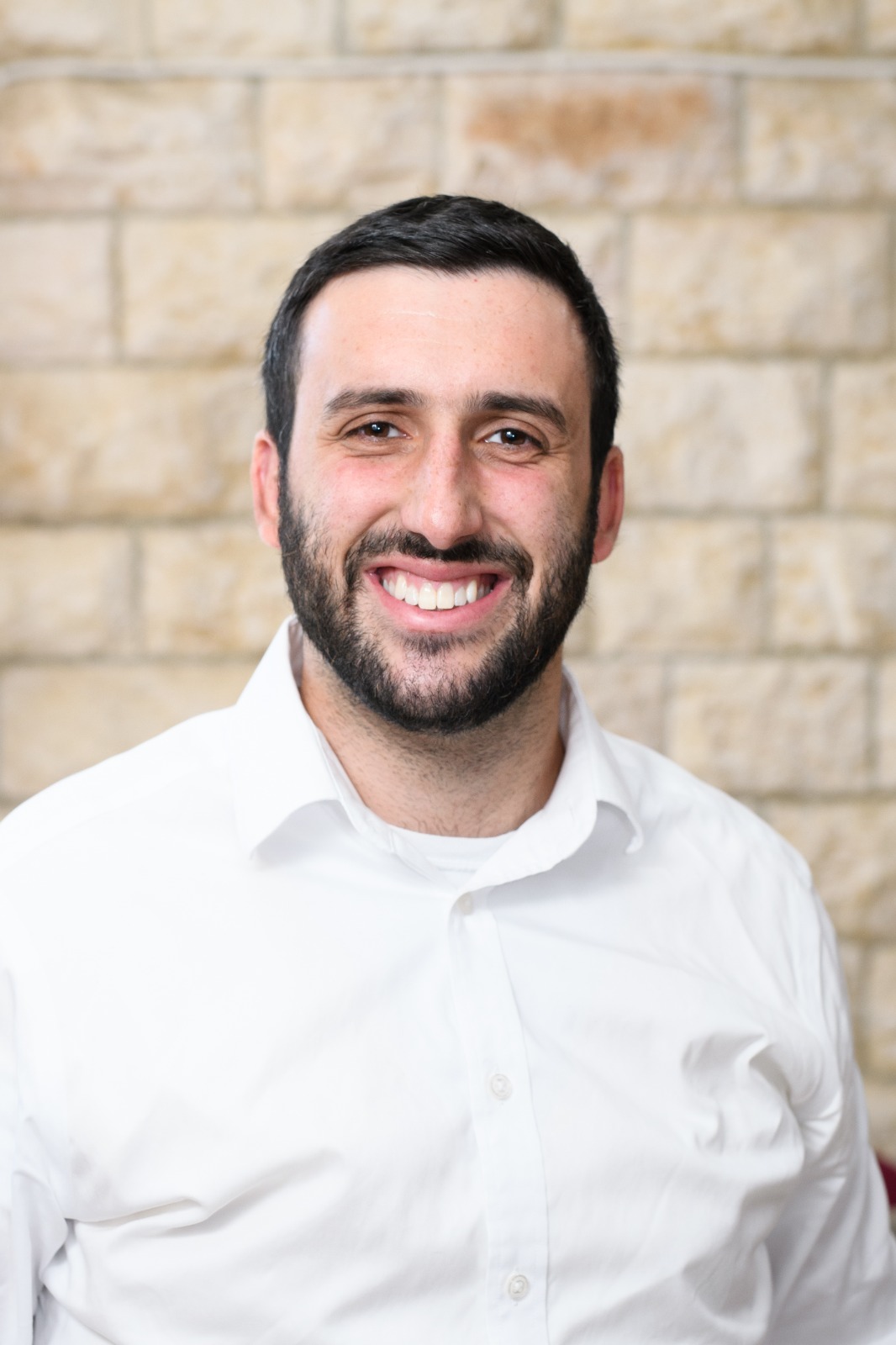Jeremy Epstein
Credentials
Finances
Licensed in Israel
Licensed Abroad
- Achiya HaShiloni 26
- Beit Shemesh
Jeremy Epstein
 Verified
Verified
Credentials
Social Worker
LMSW
Finances
350-400 NIS
N/A
Sliding Scale
ABOUT THE THERAPIST
I am a warm and compassionate therapist, and my goal is to give my clients the safe space they need to discover their best selves.
My approach is to create a space for my clients where they can learn about themselves and discover their inborn strengths. My practice is eclectic. I use whatever tools I believe my clients need to explore themselves and achieve their goals.
I offer individual therapy for anxiety, depression, relationship issues, and trauma. I specialize in working with adolescents as well.
My role as a therapist is to be my client's "co-pilot." I use my skillset and my compassion to create a safe space, but I encourage my clients to take the "steering wheel" next to me and lead the way.
QUALIFICATIONS
LMSW
Wurzweiler
2021
Degree
LMSWEducation
WurzweilerYear of Graduation
2021Years in Practice
3
LICENSED IN ISRAEL
Registered Social Worker in Israel
44068
LICENSED IN THE USA
DISTANCE COUNSELING
Online Therapy
PRIMARY SPECIALTIES
Anxiety / Panic
Depression
Life Transitions
Self-Esteem
Trauma / Post Traumatic Stress Disorder PTSD
ADDITIONAL SPECIALTIES
Adjustments
Anger Management
Executive / Career / Life Coaching
Family Issues
Gender Identity Concerns
Grief
Parenting Issues / Training
Sexual Issues
Stress Management
CLIENT FOCUS
Population
Adolescents
Adults
Men
Languages Spoken
English
TREATMENT APPROACH
Cognitive Behavioral Therapy (CBT)Cognitive Behavioral Therapy (CBT) is a type of psychotherapy that focuses on how one's thoughts, feelings and behaviors are connected and can be changed. It is based on the idea that how we think (cognition) and how we feel (emotion) can influence how we behave. CBT helps people identify and challenge distorted thinking and replace it with more balanced thinking, leading to improved mood and behavior. ‘Homework’, usually containing practical writing exercises, is often completed by the client between sessions to reinforce the therapy. Examples of tools that practitioners often use are journaling, challenging beliefs, and mindfulness.
Emotion-Focused TherapyEmotion-focused therapy (EFT) is a type of psychotherapy that is based on the idea that emotions play a key role in a person’s mental health. EFT focuses on helping people to identify, accept, and manage their emotions in a healthy and productive way. The goal of EFT is to help people identify and express their emotions, understand how those emotions impact their behavior, and learn how to manage their emotions in a way that is adaptive and healthy. EFT is a research-based approach to psychotherapy that has been found to be effective in helping people manage a variety of mental health conditions. It has been used successfully in the treatment of individuals, couples, and families, as well as with groups. EFT is particularly beneficial for people who struggle with emotional regulation, mood disorders, anxiety, trauma, and relationship issues.
Person-Centered Therapy (Rogerian Therapy)Person-centered therapy, or Rogerian therapy, was developed by Carl Rogers in the 1940’s. It is a form of talk therapy that emphasizes the importance of providing psychological safety, unconditional positive regard, and empathic understanding to clients. This type of therapy is based on the belief that individuals have an innate capacity for self-actualization and self-understanding and that the therapist's role is to provide a supportive environment in which this process can take place. Through the use of active listening, open-ended questions, and non-judgmental reflection, the therapist helps the client to explore their thoughts, feelings, and experiences in a safe and accepting environment. By doing so, clients are able to gain insight into their issues, develop a greater understanding of themselves, and work towards personal growth.
Psychodynamic TherapyPsychodynamic therapy is a form of therapy that focuses on the unconscious mind and how it affects behavior. It works to help people understand and work through past experiences and feelings that may be causing difficulties in the present. This type of therapy encourages individuals to explore their emotions, relationships, and behaviors in order to gain insight into their current difficulties. It can help individuals better understand themselves and their motivations, and gain insight into how past events have impacted their current lives. People tend to develop defense mechanisms when faced with challenges in life. Defense mechanisms may keep painful feelings, memories, and experiences in the unconscious. A few common defense mechanisms include: denial, repression, and rationalization. Psychodynamic therapists encourage people to speak freely about their emotions, desires, and fears. Being open may help uncover vulnerable feelings that have been pushed out of conscious awareness. According to psychodynamic theory, behavior is influenced by unconscious thought. Once painful feelings are brought forth and processed, the defense mechanisms are no longer needed and a person in treatment can start changing unhelpful patterns when coping with life’s challenges.
SERVICES OFFERED
Individual Therapy

 Verified
Verified

